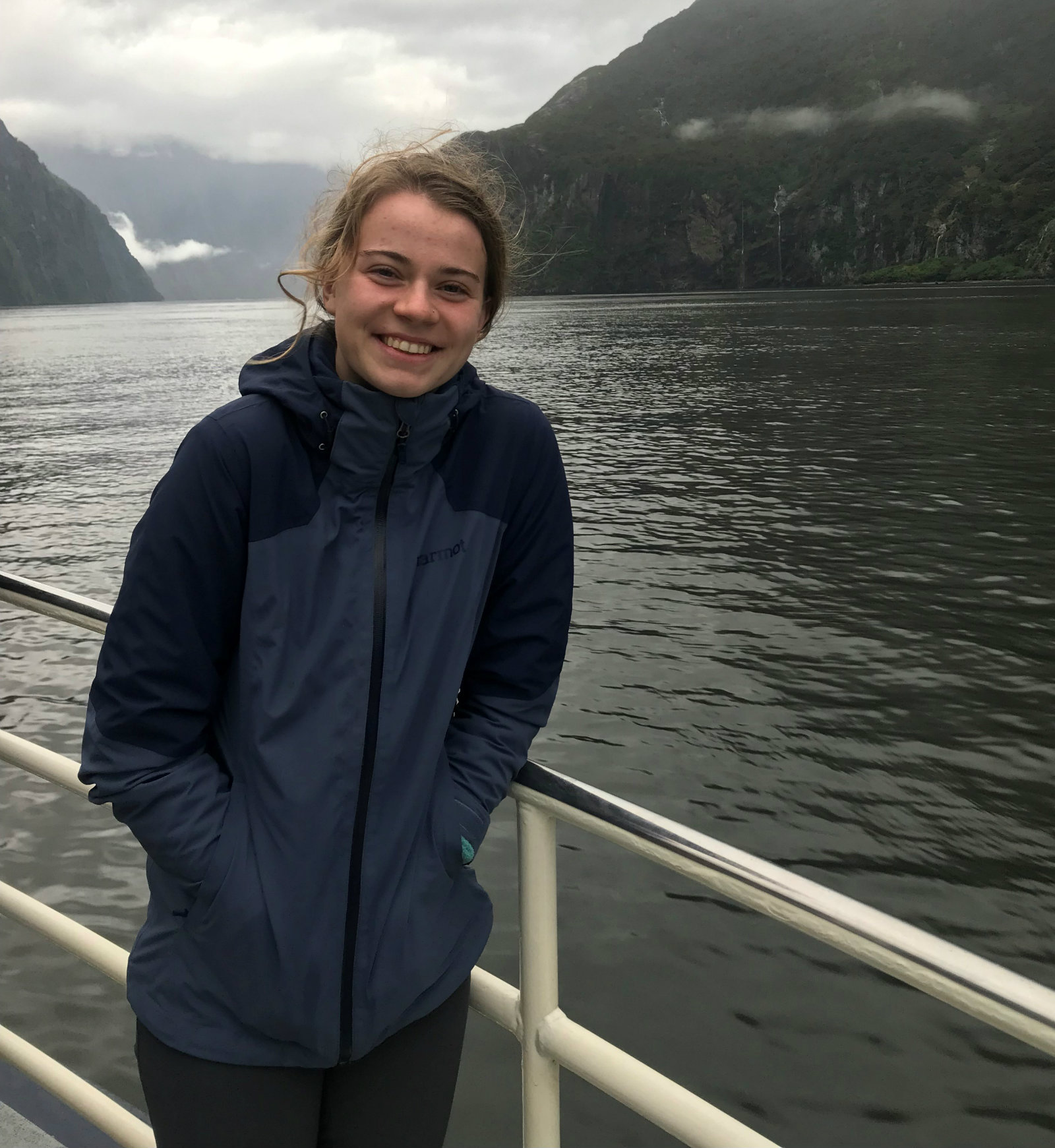Lara Jung, C’19, often notices that she feels best after spending time outdoors. That’s partly why the health and societies major, who graduated this month, was intrigued by the concept of “nature prescription programs,” in which healthcare providers prescribe outdoor activities to improve patient health.
“I had seen news articles talking about doctors prescribing time in nature, and thought how wacky that was,” she says. But her own experiences told her there might be something to it.
Although Jung grew up in Chicago, her family made an effort to seek out natural areas—whether the nearby Indiana Dunes National Park or road trips out west—where they could enjoy the outdoors.
“I’ve always been hiking and backpacking and camping with my family, and I knew intuitively that being out in nature made me feel better,” she says.
While at Penn, Jung was an intern with NaturePHL, a local organization of physicians, educators, public health advocates, and parks and recreation officials that connects Philadelphia families with activities in parks, trails, and green spaces to promote well-being. Her initial idea for her senior thesis was to interview pediatricians and families who were giving and receiving nature prescriptions. When that process hit roadblocks, she decided to take a historical approach.
“As a student in health and societies, I had immediately thought about the roots of this movement,” she says. “In the last 15 years or so, there have been articles published about the health benefits of being in green spaces versus cityscapes. I was intrigued by this resurgence of interest, because the idea that being in a place that is natural is good for your health is a very 19th-century idea.”
In the Temple University Urban Archives, Jung came across a trove of documents from the Children’s Country Week Association (CCWA), an organization founded in 1875 to bring city children to the countryside, where they were hosted for two-week stays on family farms. The program later shifted to summer camps and school programs and still operates today. With guidance from Meghan Crnic, Senior Lecturer and Undergraduate Research Coordinator in the Department of History and Sociology of Science, Jung tackled archival research for the first time, digging into CCWA’s extensively documented history.
As a 2018-2019 Wolf Humanities Center Undergraduate Research Fellow, Jung presented her paper, “Reimagining the Country: A Landscape of Children’s Health and Wellbeing from 1875-1975,” at the Center’s 20th Annual Undergraduate Conference in March.
“My most surprising findings came out of the source material,” says Jung. “For the early years, I found that CCWA’s goal was to maintain interest in the idea that being outside was good for children’s physical wellness. Then, in the early 20th century they drop that language. This is in keeping with the timeline of the biomedical revolution and germ theory, which were overtaking the environmental focus on health. So CCWA begins to emphasize the spiritual well-being of children.”
At this point CCWA’s language took on a religious cast, she says. “The organization was founded by a Quaker woman. There was no mention of God for 25 years, and then starting around 1900 all they’re talking about is ‘God’s week in the country’ or ‘God’s sunshine.’
“The rhetoric shifts rather dramatically again,” Jung continues, “around the beginning of World War I through the end of World War II—also a time of increased immigration—to the idea of civic well-being, suggesting that the community camp experience brings children together as American citizens.”
Jung tracked another trend, the rise of pediatric psychology and child development theory, by examining evaluation cards dating from the 1950s, ’60s, and ’70s, which CCWA camp counselors filled out for every camper, noting behavioral characteristics like obedience, helpfulness, tidiness, and leadership qualities.
Her research also shed light on CCWA’s early steps to integrate its summer camps in the 1960s. The program had always admitted all children but had previously hosted Black children, white children, and Jewish children in separate locations. Once integrated, Jung says the group carefully controlled the mix of students out of concern about bringing the conflicts and problems of the city to the countryside.
“This organization had created for themselves an idea of what the countryside could do,” she says. “It was this idea that its program could help children address the issues that were happening in the city. But it had to be in a place that was natural and almost uniquely American—I mean this is a Jeffersonian idea, that the countryside is a utopian place.”
Jung notes that recent studies again highlight the benefits of nature for physical and mental health, with evidence suggesting that time spent in the outdoors alleviates anxiety by retraining the adrenaline response to stress and reducing cortisol levels.
“Another trend I find compelling,” she says, “is the concept of the health benefits of awe—that being in beautiful places, like seeing a seashore or a mountain—makes you feel more connected to the world and to the people around you. You’re likely to feel small, but not in an isolated way—in a more connected way.”
Jung came to Penn mainly for the health and societies major, and despite her love of nature, she found the University’s urban setting invaluable. “We have access to people and communities and can engage with life in a way that I don’t think you can do easily if you’re in a small, sequestered place,” she says.
She is considering pursuing an advanced degree, and perhaps even a career in academia, but for now she is looking for a job that uses her writing skills—which she says were sharpened by her research experience and coursework—though still focusing on nonprofits that promote health and well-being.
“I personally really believe in the value of spending time outdoors,” she says, “and I think encouraging children and families to do the same is only going to mean good things for our public health.”



